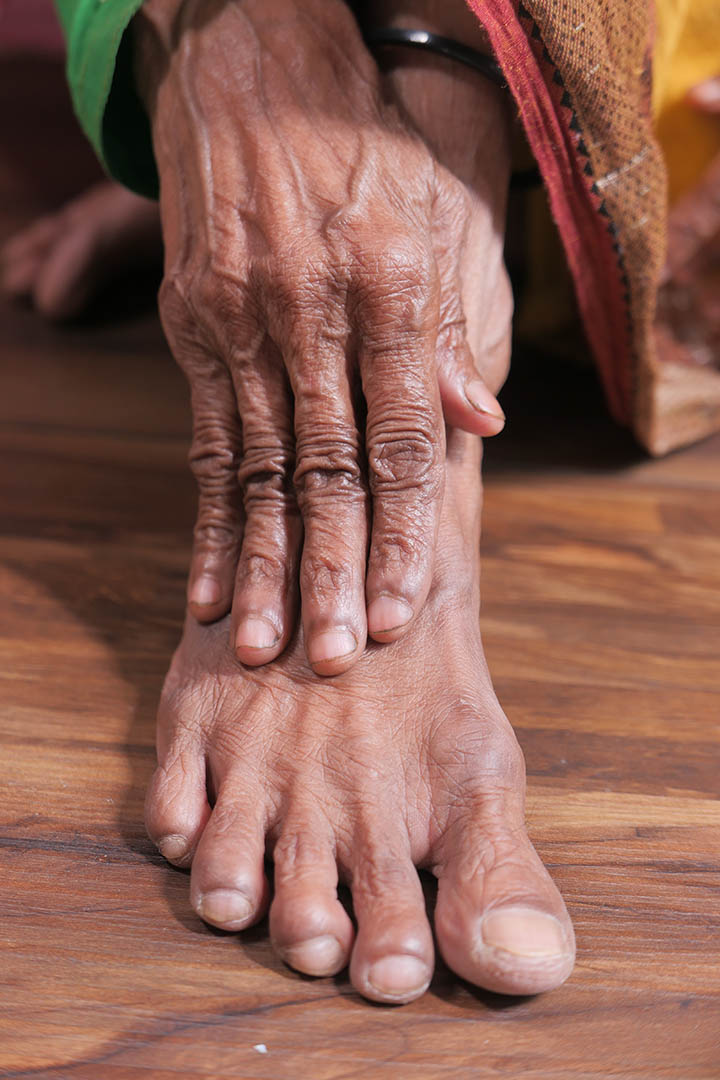Arthritis – Origins and Methods for Alleviation
Arthritis, causing chronic pain, discomfort, and diminished mobility, prompts individuals to explore diverse solutions. Let’s explore this further.

About Arthritis
JOINT RELATED PAINS
Understanding Arthritis
Arthritis is an umbrella term encompassing a group of more than 100 joint-related conditions, impacting individuals of various ages and backgrounds. The shared characteristic among these conditions is joint inflammation, leading to pain, stiffness, and diminished joint functionality. Arthritis frequently results in joint damage, significantly affecting the quality of life for those affected.
What are the prevalent types of arthritis?
Osteoarthritis
Arthritis is an umbrella term encompassing a group of more than 100 joint-related conditions, impacting individuals of various ages and backgrounds.
The shared characteristic among these conditions is joint inflammation, leading to pain, stiffness, and diminished joint functionality. Arthritis frequently results in joint damage, significantly affecting the quality of life for those affected.
Rheumatoid arthritis
Arthritis is an umbrella term encompassing a group of more than 100 joint-related conditions, impacting individuals of various ages and backgrounds.
The shared characteristic among these conditions is joint inflammation, leading to pain, stiffness, and diminished joint functionality. Arthritis frequently results in joint damage, significantly affecting the quality of life for those affected.
EARLY WARNING SIGNS OF ARTHRITIS
Symptoms of Arthritis
Recognizing the early warning signs of arthritis is vital for timely intervention and effective management. Look out for common symptoms, including:
Pain, sensitivity, or swelling in the joints
Stiffness, especially in the morning or after periods of inactivity
Restricted range of motion
Heat and redness in the joint area
Fatigue and unexpected weight loss
Deformities in the joints

CAUSES OF ARTHRITIS
What are the causes of arthritis?
Understanding the causes of arthritis can be complex, as they vary depending on the specific type of arthritis. However, key factors influencing the development of arthritis include:
Age
Osteoarthritis is often associated with aging, as joint wear and tear accumulate over time. However, various forms of arthritis can affect individuals of all age groups.
Genetics
Certain forms of arthritis, like rheumatoid arthritis, tend to have a familial predisposition. If there is a family history of arthritis, the risk of developing it may be higher.
Autoimmune disorders
Conditions such as rheumatoid arthritis and other autoimmune diseases can prompt the immune system to attack joint tissues, resulting in inflammation.
Injuries
Joint injuries, such as fractures or ligament tears, can elevate the risk of arthritis development later in life.
Infections
Infections in the joint, though rare, can lead to a specific type of arthritis.
Obesity
Excess weight places additional stress on weight-bearing joints, contributing to arthritis development, particularly osteoarthritis.
Occupation and activities
Certain professions or sports involving repetitive joint movements and stress may heighten the likelihood of arthritis development.

HEEL PAIN
Is plantar fasciitis classified as a type of arthritis?
BAREFOOT WALKING
Is arthritis caused by walking barefoot?
The notion that walking barefoot leads to arthritis is a common misconception. In fact, walking barefoot is a natural and beneficial activity that encourages free movement of the feet and can strengthen muscles, tendons, and ligaments in the feet.
While walking on hard or uneven surfaces without proper support may cause foot pain or other issues, it does not directly cause arthritis in the joints.
ARTHRITIS MANAGEMENT
Can arthritis be cured?
Arthritis, in most cases, cannot be cured. However, it can be effectively managed through appropriate treatment and lifestyle adjustments.
The main goals of arthritis management usually include reducing pain, improving joint function, and slowing down the progression of the disease.
Timely intervention and effective management can greatly enhance a person’s quality of life.
GRADUAL DETERIORATION
Is arthritis degenerative?
Arthritis is classified as a degenerative condition because it often results in the gradual deterioration of joint structures, including cartilage and bone.
However, the pace of degeneration varies among individuals and is influenced by factors such as the type of arthritis, genetic predisposition, and the efficacy of treatment.
SPECIALIST IN ARTHRITIST
Which healthcare specialist or doctor should I consult for arthritis?
Rheumatologist
Rheumatologists are medical doctors with expertise in diagnosing and treating arthritis and related autoimmune conditions. They can conduct a comprehensive assessment and create a personalized treatment plan based on your specific needs.
Orthopaedic surgeon
If your arthritis has advanced to a stage where surgical intervention is required, an orthopedic surgeon can perform joint replacement surgeries, such as hip or knee replacements.
Physiotherapist
A physiotherapist can collaborate with you to develop an exercise plan aimed at improving joint function and alleviating pain. They can also provide techniques for managing your condition.
Chiropractor
Chiropractors, specializing in spinal health, can be beneficial for certain types of arthritis, particularly those impacting the spine and surrounding joints. They concentrate on manual adjustments to enhance spinal alignment and reduce pain.
While some individuals may find relief after a few initial adjustments, others may require several months. At NoFrills Chiropractic, our approach extends beyond mere pain relief; we aim to tackle the root cause through consistent adjustments (typically 1-2 times per week) and a personalized exercise and stretch plan over a few months.

CHIROPRACTIC APPROACHES TO ARTHRITIS
Is chiropractic care effective for arthritis?
CHIROPRACTOR FOR ARTHRITIS
How many chiropractic sessions are needed for arthritis relief?
Severity of Your Arthritis:
The number of chiropractic sessions required depends on the severity of your arthritis. Mild cases may show improvement with fewer sessions, while more severe forms may necessitate a longer care plan to achieve relief and enhanced mobility.
Overall Health
Your overall health significantly influences the duration of chiropractic care needed. Embracing a healthy lifestyle, including maintaining a balanced diet and engaging in regular exercise, can complement chiropractic sessions. This may potentially reduce the frequency of visits required to address arthritis-related discomfort.
Individual Response
Lifestyle factors
Lifestyle choices, such as making ergonomic improvements, adjusting posture, and incorporating recommended exercises into your daily routine, have a significant impact on your recovery from arthritis. Active participation in managing arthritis through lifestyle changes can influence the number of chiropractic sessions needed, potentially shortening the overall care timeline.

ARTHRITIS MANAGEMENT
Can arthritis be managed?
Note: The information provided is not a substitute for a diagnosis or medical care. Symptoms and treatments vary from person to person, and consultation with a chiropractor is recommended for an accurate diagnosis and personalized recommendations.
Book your initial chiropractic visit
hello@nofrillschiropractic.com
Phone
9007 1085
Open Hours
Mondays - Sundays: 9am-6pm
We're here whenever you need us
hello@nofrillschiropractic.com
Contact Us
9007 1085
Open Hours
Monday-Sundays:
10am to 7pm
Address
279 Tanjong Katong Rd
S437062
